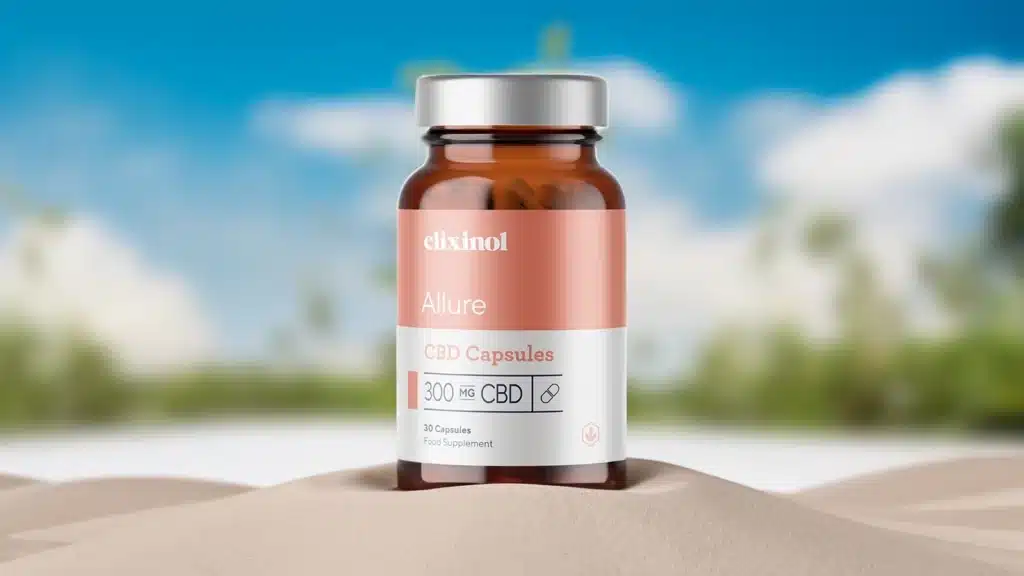
Exploring the Halal Status of CBD Oil Capsules
September 7, 2023
In the quest for maintaining optimal health and enhancing overall wellness, individuals of diverse backgrounds often seek answers to questions that pertain to their faith and lifestyle choices. Among these inquiries, the matter of whether CBD products align with Islamic dietary laws has emerged as a topic of contemplation.
This article embarks on a thoughtful exploration of the intersection between Islamic jurisprudence and the burgeoning world of CBD, specifically focusing on CBD oil capsules. We will navigate whether is CBD oil capsules halal. examining the potential harmony between CBD capsules and Islamic principles that guide dietary choices.
As we journey through this discourse, we will unravel the essence of CBD capsules, their non-psychoactive attributes, and the nuanced considerations surrounding their compatibility with Islamic beliefs. Throughout this enlightening journey, we will underscore the significance of sourcing products from reputable providers and seeking counsel from respected religious leaders to ensure a harmonious balance between faith and wellness.
Understanding CBD Capsules
Before delving into the intricacies of Islamic dietary law, let’s embark on a journey to comprehend the essence of CBD capsules. CBD, or cannabidiol, is a naturally occurring compound derived from the Cannabis sativa plant.
While studies suggest that CBD may offer an array of potential health benefits, it is crucial to approach these claims with the awareness that individual responses can vary. Unlike its more renowned counterpart, THC (tetrahydrocannabinol), CBD is distinguished by its non-psychoactive nature, meaning that its consumption is less likely to induce the characteristic “high” associated with cannabis.
CBD comes in diverse forms, catering to the preferences and needs of individuals who aspire to maintain their health and enhance their overall wellness. These forms include tinctures, edibles, topical creams, and the focal point of our exploration – capsules.
This wide array of options empowers individuals to choose the method that best resonates with their wellness journey. It is important to emphasize that while studies suggest potential health benefits associated with CBD, these effects may not be universally experienced, underscoring the importance of individual variations in response.
As we proceed, we will traverse the multifaceted landscape of CBD, delving deeper into its potential compatibility with Islamic dietary principles.

Can CBD Capsules Make You High?
One of the primary concerns among Muslims contemplating CBD is whether it can lead to intoxication. Studies suggest that CBD capsules do not induce intoxication.
Unlike THC, which is known for its psychoactive properties, CBD capsules are crafted to contain minimal to zero THC, which may reduce the likelihood of experiencing mind-altering effects. In essence, CBD may offer potential health benefits without the associated high.
Is CBD Oil Capsules Halal?
Exploring the halal status of CBD oil capsules involves examining several key factors to determine if they align with Islamic dietary laws. Here’s a breakdown of the considerations to keep in mind:
1. Source of CBD:
- Hemp-Derived CBD: CBD is typically extracted from hemp plants, which are different from marijuana plants in that they contain very low levels of THC (less than 0.3%). Hemp-derived CBD is generally considered halal, as hemp is a plant and not inherently intoxicating.
- Marijuana-Derived CBD: CBD extracted from marijuana plants may not be halal due to the higher THC content, which can have psychoactive effects. This is a crucial point since substances that cause intoxication are generally considered haram (forbidden) in Islam.
2. THC Content:
- For a CBD product to be considered halal, it must contain negligible or no THC, as THC is the psychoactive component in cannabis that causes intoxication. The legal limit in many places is 0.3%, and products within this limit might be more likely to be considered halal.
3. Processing and Ingredients:
- The processing of CBD oil and the ingredients in CBD capsules must also comply with halal requirements. This includes avoiding alcohol or any non-halal substances during extraction and processing.
- Gelatin Capsules: Many CBD oil capsules are encased in gelatin, which is often derived from pigs (porcine) or non-halal slaughtered animals. If the gelatin is not sourced from halal-certified animals or is derived from a permissible plant source, the capsules may not be considered halal.
4. Alcohol in Extraction:
- Some CBD extraction methods use alcohol as a solvent. If the alcohol used is ethanol and it’s fully removed from the final product, it might still be considered halal by some scholars. However, if the alcohol remains or if it’s of a type considered haram (like ethyl alcohol from grapes or dates), the CBD product may not be permissible.
5. Certification:
- To ensure the CBD capsules are halal, look for products that have been certified by a reputable halal certification body. This certification ensures that the product has been vetted for compliance with Islamic dietary laws, including the source of CBD, processing methods, and ingredients.
Discover Wellness with Elixinol
In the pursuit of enhancing wellness and maintaining health, the choice of CBD products can be a profound decision. When considering options that align with these noble objectives, it is worth exploring the extensive range offered by Elixinol.
Elixinol stands as a venerable name in the realms of skincare and wellness, esteemed for its dedication to quality and innovation. Elixinol’s array of CBD-infused products is designed to cater to a diverse spectrum of preferences and needs.
While Elixinol refrains from making specific health claims, its commitment to providing meticulously crafted CBD offerings reflects a dedication to your well-being. These products are created with a vision of enhancing wellness, and their potential benefits are a subject of ongoing exploration and study.
As you embark on your wellness journey, the inclusion of Elixinol’s CBD-infused products may serve as a valuable addition to your routine. While the exact outcomes may vary from person to person, Elixinol’s unwavering focus on quality and ethical practices ensures that you have the opportunity to explore the potential benefits of CBD with confidence.
In this nuanced realm where faith and wellness intersect, Elixinol strives to be a trusted companion, offering products that respect your individual choices and aspirations for a healthier, more balanced life. Whether you are seeking to maintain health, improve wellness, or simply explore the potential benefits of CBD, Elixinol invites you to embark on a journey of discovery and well-being.

Understanding Potential Side Effects
Like any dietary supplement, CBD capsules may have side effects, although they are typically mild and temporary. Common side effects include dry mouth, dizziness, and changes in appetite.
It’s essential to consult a healthcare professional if you experience any severe or prolonged side effects.
Addressing the Alcohol Concern
Questions may arise concerning the presence of alcohol in CBD products. From a wellness perspective, it’s important to clarify that CBD oil itself does not inherently contain alcohol.
However, some CBD tinctures may include alcohol as a carrier substance. The permissibility of these products from an Islamic standpoint depends on the specific type and usage of alcohol, which religious leaders may provide guidance on.
Finding Halal-Friendly CBD Products
To ensure you’re making halal-friendly choices when it comes to CBD products, follow these guidelines:
- Seek out products labeled as THC-free.
- Scrutinize ingredient lists for any non-halal components.
- Look for certifications that may indicate ethical and halal-friendly production practices.
- Consider products that have undergone third-party lab testing for quality and purity.
In Conclusion
The realm of CBD in anti-ageing is expansive and promising. While initial results are encouraging, one must tread with knowledge and guidance.
Is CBD the fountain of youth we’ve all been seeking? Perhaps, with more research and understanding, we’ll find our answer.
For those eager to explore further:
